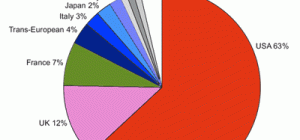 Inflation is defined as a sustained rise in the general price level of goods and services in an economy over some time. When inflation is high, each unit of currency buys fewer goods and services. As a result, inflation can erode the purchasing power of money, making it difficult to maintain one’s standard of living. This decrease in purchasing power can cause financial hardship, as your money does not go as far as it used to.
Inflation is defined as a sustained rise in the general price level of goods and services in an economy over some time. When inflation is high, each unit of currency buys fewer goods and services. As a result, inflation can erode the purchasing power of money, making it difficult to maintain one’s standard of living. This decrease in purchasing power can cause financial hardship, as your money does not go as far as it used to.
What should you do?
One way to combat inflation is to take out a personal loan. By borrowing money at a fixed interest rate, you can lock in the value of your loan and be protected against inflation. If you are having trouble paying your bills, you might want to compare personal loans so you find a loan that can help you get through this difficult time without paying large fees.
Personal loans can also help you to make major purchases, such as a car or a home, during periods of high inflation. By taking out a loan, you can avoid having to sell your assets at a lower price due to inflation. Overall, personal loans can be a helpful tool for managing your finances during periods of high inflation.
To protect yourself from inflation, you can also diversify your portfolio by investing in a mix of assets, including stocks, bonds, and real estate. This will help to insulate your portfolio from inflationary pressures. It’s also important to stay invested. Selling investments during periods of high inflation can result in losses. Instead, stay invested and ride out the storm.
There are ways to invest in inflation-protected securities. These include Treasury Inflation-Protected Securities (TIPS) and Series EE Savings Bonds. TIPS are bonds issued by the US government that offer protection against inflation, while Series EE Savings Bonds are low-risk bonds that offer a fixed rate of interest plus inflation protection. TIPS can be purchased directly from the Treasury or through a broker. EE bonds can be purchased directly from the Treasury or through a financial institution such as a bank or credit union.
As inflation picks up, it’s important to be strategic about where you invest your money.
Here are some expert tips on how to protect your finances during this inflationary period:
- Keep cash reserves in a high-yielding savings account. This will help offset the effects of inflation and provide a buffer in case of an emergency.
- Consider investing in inflation-protected securities, such as Treasury Inflation-Protected Securities (TIPS). TIPS offers protection against inflation by providing a fixed rate of interest that is adjusted for inflation.
- Commodities can also be a good hedge against inflation. When inflation increases, commodity prices often go up as well since commodities are used in the production of goods and services.
- Invest in Real estate. When inflation goes up, property values usually increase as well. This is because inflation increases the cost of living, making the property more valuable in real terms.
- Keep your assets diversified. This will help to minimize the impact of inflation on any one asset.
- Invest in companies that are likely to benefit from high inflation. For example, companies that produce consumer goods or commodities are often able to increase prices in order to offset the effects of inflation.
- Stay informed about the current economic conditions and how they may impact the value of your assets. This will help you make decisions about when to buy, sell, or hold onto assets.
- Finally, you may want to consider investing in inflation-proof investments such as precious metals or art. These assets tend to retain their value or increase in value during periods of inflation.
The cost of living is getting higher and higher, and it seems like there’s no end in sight. But inflation is a complex economic phenomenon, and many factors contribute to its ebbs and flows. So, what does the future hold for inflation?
Unfortunately, it’s impossible to say for sure. However, there are some indicators that inflation may start to ease up in the coming months. Overall, it’s difficult to predict exactly what will happen with inflation in the future. However, by following these tips, you can help protect your finances during periods of inflation.
Always consult with a financial advisor before making any big decisions when it comes to your investment portfolio.







